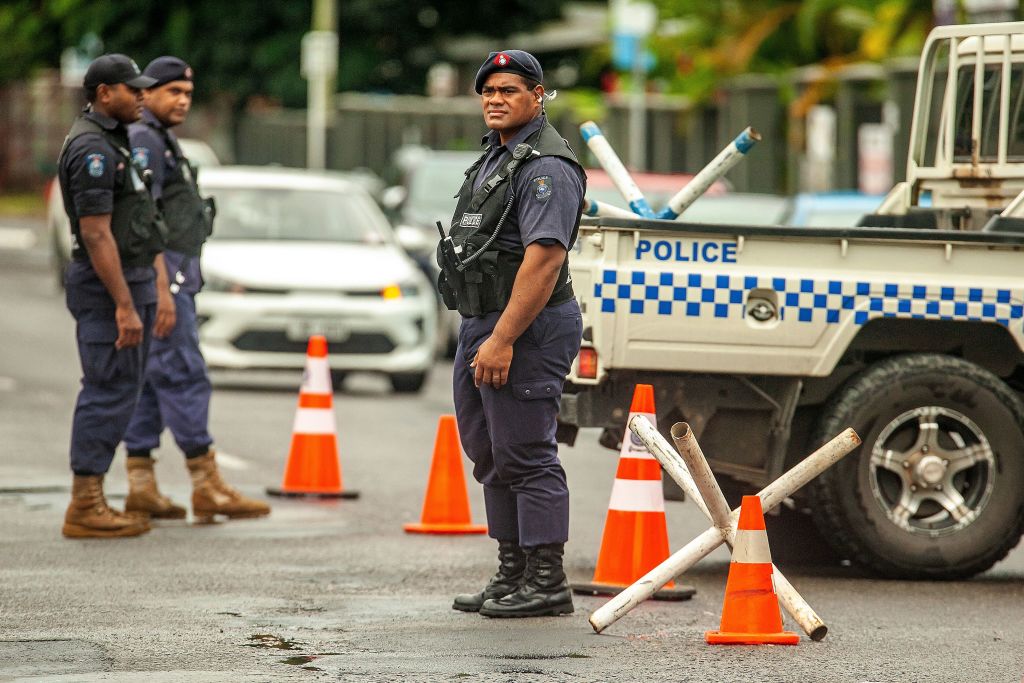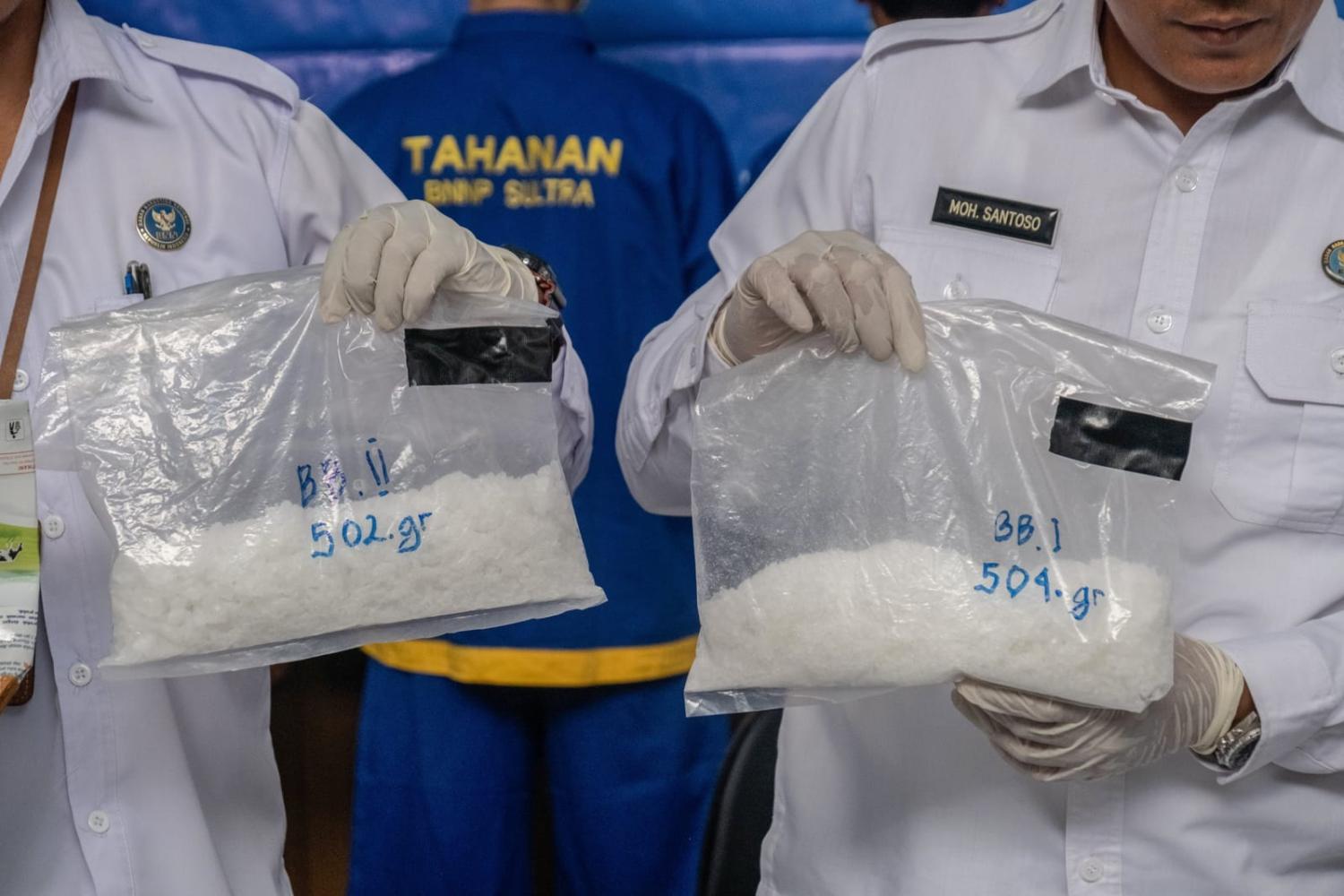Is the Pacific prepared for a potential spillover of transnational organised crime from Southeast Asia? This question has become more pressing in recent days following two massive drug busts in Fiji, where authorities seized an estimated 4.1 tonnes of methamphetamine. The investigation is still in its early stages, so the suspected source of the drugs has not been made public. Yet with Southeast Asia’s reputation as a hub for organised and transnational crime and proximity to the Pacific, it seems timely to prioritise discussions about spillover effects in the region.
The United Nations Office on Drugs and Crime (UNODC) Regional Representative to Southeast Asia and the Pacific recently highlighted the displacement effect of transnational and organised crime. In essence, disruption strategies by police in East and Southeast Asia can force criminal infrastructure to move to places deemed more conducive. The choice of where to move can be due to perceived vulnerabilities, weaker law enforcement, or systems more susceptible to penetration and compromise.
But there remains a lack of documented discourse about preventing or responding to likely spillover effects in highly vulnerable Pacific Island countries and territories. The recent cooperation between the Association of Southeast Asian Nations (ASEAN), the People’s Republic of China, and UNODC outlined a "Regional Cooperation Roadmap to Address Transnational Organised Crime and Trafficking in Persons Associated with Casinos and Scam Operations in Southeast Asia". Notably, it does not explicitly identify its Pacific neighbours as an interregional cooperation partner.
All but three Pacific nations ratified the United Nations Convention against Transnational Crime more than a decade ago. However, gaps remain with the implementation of the Convention. Laws in some countries do not address issues specific to transnational and organised crime. National and regional commitments lack the swiftness, efficacy and conviction with which threats such as climate change and the Covid-19 pandemic are confronted.
Legislative loopholes are just one problem that can facilitate the creation of environments conducive to transnational and organised crime in the Pacific. Instances of individuals with INTERPOL Red Notices being able to move freely and frequently across the region for extended periods also indicate systemic gaps in regional communication or the existence of systems that purposefully facilitate such movement – or a combination of each. The Pacific Islands Chief of Police Chair noted in 2022 that not all Pacific countries are currently able to be members of INTERPOL and donors should consider supporting all countries to take the step.
The Chinese-Malaysian dominated timber industry in the South Pacific has been described as legal entities that supply the networks and infrastructure for illegal operations. The Pacific’s growing attractiveness to criminal entities indicates its potential use as a people smuggling route, and increased use as a trans-shipment point to Australia and New Zealand. There have also been reports of expanding domestic markets for illicit drugs. The increased presence of outlaw motorcycle gangs and the establishment of Pacific bases of operations substantiate claims about the recognition of the region as a strategic trans-shipment point.
Investigations have shown links to organised crime in China and an increase in the number of casinos across the Pacific region, particularly in contexts with weak gambling, cybercrime and money-laundering regulatory regimes. Some of these casinos have been associated with other forms of organised crime such as people smuggling and money laundering. Notably, a crackdown in China on online casinos and scam camps emanating from the Mekong Region, as well as by the Philippines government, has seen criminal syndicates under mounting pressure to shift operations, with Pacific markets a potential next step.

Mapping transnational organised crime trends in different regions across the globe provides useful information. The lessons from other regions can serve as a preview for Pacific countries of the dire consequences to be expected if countries fail to act expediently on the problems that exist and to prepare. Academics can play a role here, using the research to assist Pacific law enforcement and regional organisations to see signals of change.
The way forward requires a greater level of commitment from Pacific states in the form of strengthened security frameworks and increased resources dedicated to disrupting transnational criminal networks. The conversation must shift beyond organisational, national or regional siloes. Global partnerships will be needed if Pacific countries are to capitalise on intelligence related to the rapid adaptability and digitalisation of expanding criminal markets. Countries attempting to combat transnational organised crime as a national threat undermines their very effort.
In addition to existing formal mechanisms in place to facilitate interregional cooperation, there needs to be a greater emphasis on strengthening national law enforcement systems, including police, customs, immigration and fisheries agencies, required to detect, disrupt and dismantle transnational organised crime operations. An approach that situates domestic responses within a larger regional architecture with global connections will better position the Pacific to look beyond the wavetops as countries brace for the impact of the spillover of criminal enterprises disrupted in Southeast Asia.

